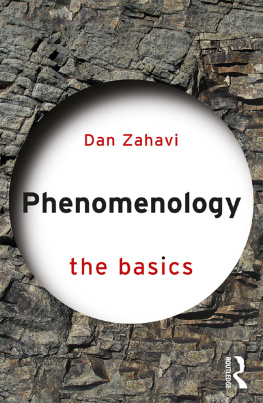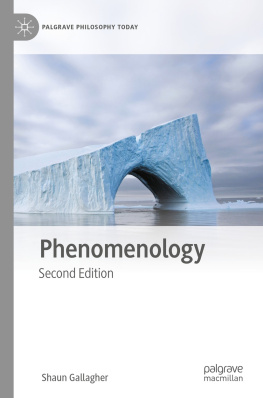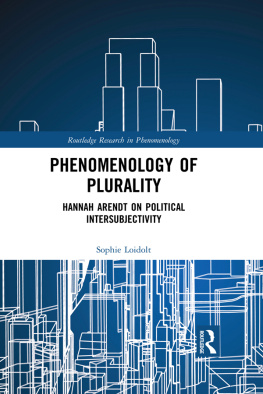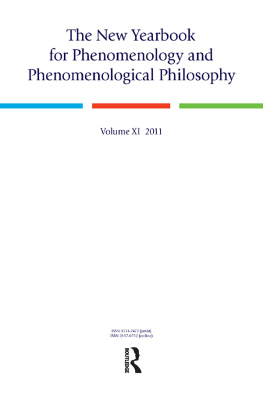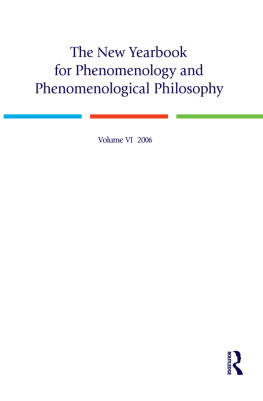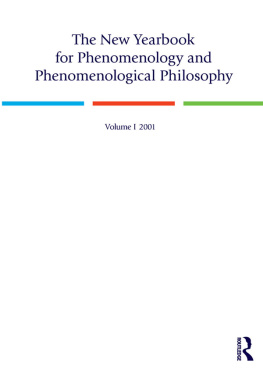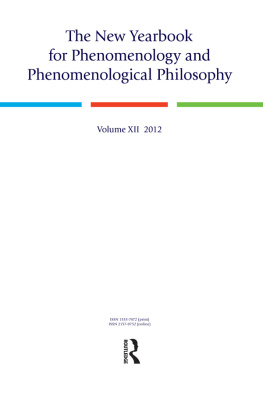
PHENOMENOLOGY
THE BASICS
Phenomenology: The Basics is a concise and engaging introduction to one of the dominant philosophical movements of the 20th century. This lively and lucid book provides an introduction to the essential phenomenological concepts that are crucial for understanding great thinkers such as Husserl, Heidegger, and Merleau-Ponty. Written by a leading expert in the field, Dan Zahavi examines and explains key questions such as:
What is a phenomenological analysis?
What are the methodological foundations of phenomenology?
What does phenomenology have to say about embodiment and intersubjectivity?
How is phenomenology distinguished from, and related to, other fields in philosophy?
How do ideas from classic phenomenology relate to ongoing debates in psychology and qualitative research?
With a glossary of key terms and suggestions for further reading, the book considers key issues in phenomenology, making this an ideal starting point for anyone seeking a concise and accessible introduction to the rich and complex study of phenomenology.
Dan Zahavi is Professor of Philosophy at the University of Copenhagen, Denmark and the University of Oxford, UK, and Director of the Center for Subjectivity Research in Copenhagen. He is the author of Self-Awareness and Alterity (1999), Husserls Phenomenology (2003), Subjectivity and Selfhood (2005), Self and Other (2014), and Husserls Legacy (2017). He co-authored The Phenomenological Mind (2012) with Shaun Gallagher, and has recently edited The Oxford Handbook of Contemporary Phenomenology (2012) and The Oxford Handbook of the History of Phenomenology (2018).
THE BASICS
Available:
AMERICAN PHILOSOPHY
NANCY STANLICK
ANIMAL ETHICS
TONY MILLIGAN
ARTIFICIAL INTELLIGENCE
KEVIN WARWICK
EVOLUTION
SHERRIE LYONS
FOOD ETHICS
RONALD SANDLER
FREE WILL
MEGHAN GRIFFITH
METAPHYSICS
MICHAEL RAE
PHILOSOPHY (FIFTH EDITION)
NIGEL WARBURTON
GLOBAL JUSTICE
CARL DEATH AND HUW L. WILLIAMS
HUMAN GENETICS (SECOND EDITION)
RICKI LEWIS
LOGIC (SECOND EDITION)
J.C. BEALL
BIOETHICS (SECOND EDITION)
ALASTAIR CAMPBELL
PHENOMENOLOGY
DAN ZAHAVI
Other titles in the series can be found at: www.routledge.com/The-Basics/book-series/B
First published 2019
by Routledge
2 Park Square, Milton Park, Abingdon, Oxon OX14 4RN
and by Routledge
711 Third Avenue, New York, NY 10017
Routledge is an imprint of the Taylor & Francis Group, an informa business
Translation 2019 Dan Zahavi
The right of Dan Zahavi to be identified as author of this work has been asserted by him in accordance with sections 77 and 78 of the Copyright, Designs and Patents Act 1988.
All rights reserved. No part of this book may be reprinted or reproduced or utilised in any form or by any electronic, mechanical, or other means, now known or hereafter invented, including photocopying and recording, or in any information storage or retrieval system, without permission in writing from the publishers.
Trademark notice: Product or corporate names may be trademarks or registered trademarks, and are used only for identification and explanation without intent to infringe.
Original Edition
Fnomenologi
Published in Danish by Samfundslitteratur/Roskilde Universitetsforlag, 2003.
British Library Cataloguing-in-Publication Data
A catalogue record for this book is available from the British Library
Library of Congress Cataloging-in-Publication Data
A catalog record has been requested for this book
ISBN: 978-1-138-21669-3 (hbk)
ISBN: 978-1-138-21670-9 (pbk)
ISBN: 978-1-315-44160-3 (ebk)
Typeset in Bembo and Scala Sans
by Sunrise Setting Ltd., Brixham, UK
To Adam, Emil, and Julie
CONTENTS
Back in 2003, I published a short introduction to phenomenology in Danish. In the years that followed, the book was translated into German (2007), Icelandic (2008), and Japanese (2015). In 2016, I contacted Routledge and asked whether they might be interested in publishing an English translation. We quickly reached an agreement, but when I started translating the text from Danish, I came to realize that there were many ways in which the original text from 2003 could be improved upon. In the end, I decided to rework and rewrite the entire text completely. The result is a much longer and, I believe, far better book.
During the process, I have partially drawn on previously translated material from other introductory articles and book chapters of mine, including Phenomenology, in D. Moran (ed.), Routledge Companion to Twentieth-Century Philosophy (London: Routledge, 2008); Phenomenological Sociology: The Subjectivity of Everyday Life (with S. Overgaard), in M. Hviid Jacobsen (ed.), Encountering the Everyday: An Introduction to the Sociologies of the Unnoticed (Basingstoke: Palgrave Macmillan, 2009); Intersubjectivity, in S. Luft & S. Overgaard (eds.), The Routledge Companion to Phenomenology (Routledge: London, 2011); Time, Space and Body in Bergson, Heidegger and Husserl (with S. Overgaard), in R. Baiasu, G. Bird & A.W. Moore (eds.), Contemporary Kantian Metaphysics: New Essays on Space and Time (Basingstoke: Palgrave Macmillan, 2012); Naturalized Phenomenology: A Desideratum or a Category Mistake? Royal Institute of Philosophy Supplement 72 (2013), 2342; and Varieties of Phenomenology, in W. Breckman & P.E. Gordon (eds.), The Cambridge History of Modern European Thought (Cambridge: Cambridge University Press, 2019).
***
Let me express my gratitude to Thomas Bestle, Alessandro Duranti, Magnus Englander, Simon Hffding, Piet Hut, Bente Martinsen, Kristian Moltke Martiny, James Morley, Sren Overgaard, Susanne Ravn, and my students in Copenhagen for various helpful suggestions to different parts of the text. A special and heartfelt thanks to Sara Heinmaa, who read and offered insightful comments to the entire manuscript.
Phenomenology counts as one of the dominant traditions in 20th-century philosophy. Edmund Husserl (18591938) One reason for its influence is that almost all subsequent theory formations in German and French philosophy can be understood as either extensions of or reactions to phenomenology. A proper grasp of phenomenology is, consequently, important not only for its own sake, but also because it remains a sine qua non for an understanding of subsequent developments in 20th-century theorizing.
Over the years, phenomenology has made major contributions to many areas of philosophy and offered groundbreaking analyses of topics such as intentionality, perception, embodiment, emotions, self-consciousness, intersubjectivity, temporality, historicity, and truth. It has delivered a targeted criticism of reductionism, objectivism, and scientism, and argued at length for a rehabilitation of the lifeworld. By presenting a detailed account of human existence, where the subject is understood as an embodied and socially and culturally embedded being-in-the-world, phenomenology has provided crucial inputs to a whole range of empirical disciplines, including psychiatry, sociology, psychology, literary studies, anthropology, and architecture.
Even though many of the by-now classical works in phenomenology were written in the first half of the 20th century, phenomenology continues to be a source of inspiration and has in recent years been the subject of renewed interest. Indeed, it would not be an exaggeration to claim that phenomenology is currently undergoing something of a renaissance.
Next page
